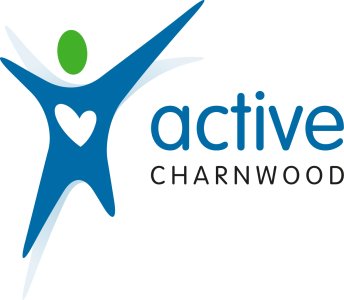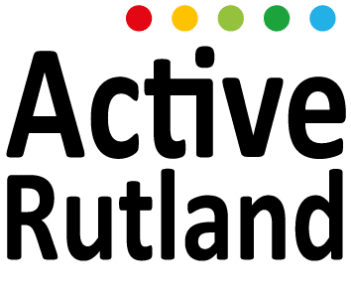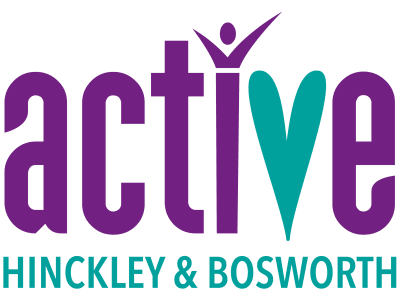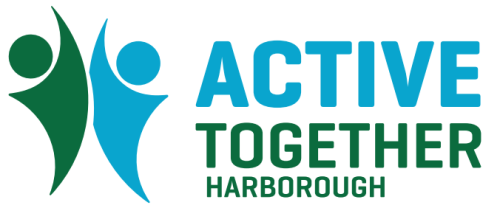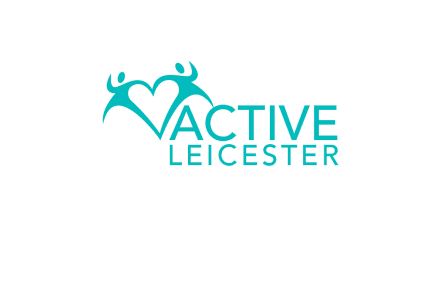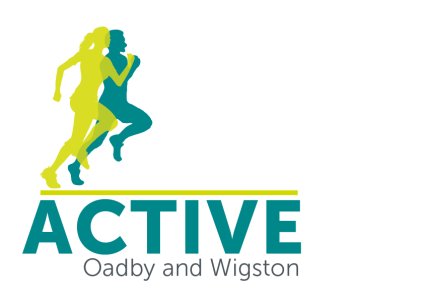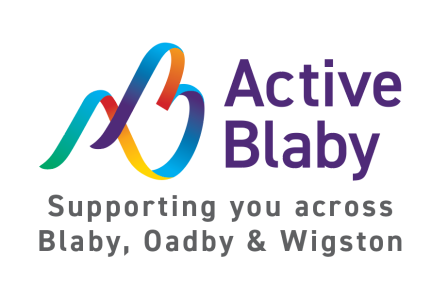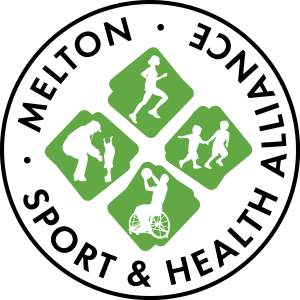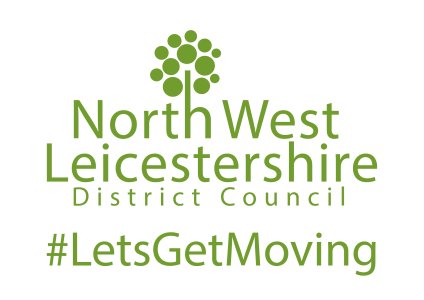
Leicestershire, Leicester and Rutland Girls Can
Welcome
This Girl Can is the award-winning campaign funded by the National Lottery that seeks to tell the real stories of women who get active or play sport. Women come in all shapes and sizes and all levels of ability. It doesn't matter if you're rubbish or an expert. The brilliant thing is you're a woman and you're doing something.
Active Together believe Leicestershire, Leicester and Rutland Girls Can.
From periods and starting a family, to pelvic health and menopause, we want to champion women's health. We know that regular physical activity is one of the most important things a woman can do to stay healthy across her life. This page focuses on understanding the changing health needs for girls and women during their adolescent, reproductive and post-reproductive years, and how physical activity can help to maintain good physical and mental health.

Let's Get Out There!
Inspiring and empowering women and girls to enjoy getting active outdoors.
Join This Girl Can on a mission to show that natural environments are for all women. Discover the mental and physical health benefits of spending time in green and blue spaces. Embrace nature as a place to improve your physical health and overall wellbeing. Whether you're into yoga, running, cycling, or simply taking a leisurely walk, we encourage women and girls to make the most of the great outdoors.

FAQs
Menstrual health
Many women wonder whether they are able to be active during their period. The answer is easy: Yes! In fact, you may find that you can be more physically active and at a greater intensity at certain times of the month than at other times:
Week 1 |
Week 2 |
Week 3 |
Week 4 |
|---|---|---|---|
On the first day of your period, oestrogen and progesterone levels are at their lowest. But they begin to gradually rise during your period. It may be easier to get active than in the previous weeks. |
In the week after your period ends, your energy levels might begin to go up. Oestrogen levels begin rising quickly in preparation for ovulation (releasing an egg from the ovary). |
Oestrogen levels peak around the time of ovulation. When oestrogen levels fall quickly after ovulation and progesterone levels begin rising, you may feel more tired than usual. This does not mean that you should not exercise. In fact, being active might help boost your mood and give you more energy. Try exercising first thing in the morning, before your energy level goes down as the day goes on. |
In the week before your next period, you may feel less energy as both oestrogen and progesterone levels are falling (if you are not pregnant). Physical activity may help premenstrual symptoms (PMS) get better even if your energy levels are low. |

Tips for remaining physically active throughout your menstrual cycle:
Info and top tips to help you feel your best:
- Try keeping a diary to track your menstrual cycle and your energy levels every time you are physically active. After a few months, you should be able to see when you have more or less energy during your cycle.
- Some women have fewer painful cramps during menstruation if they exercise regularly.
- Many people find using period pants or menstrual cups more comfortable when exercising (compared to pads or tampons) as they don't have to think about changing them as often and also worry less about leaking or things showing through their clothes. These can be purchased through many shops such as ModiBodi, WUKA, M&S or you can come along to a Freedom4Girls Make the Switch event where you can learn more about reusable period products and take some home with you for free!
- It is a myth that using a tampon or menstrual cup will take your virginity. Using these products is not haram in Islamic faiths, nor is washing your period pants in the washing machine.
- Period blood is like any other and is not dirty or something to be ashamed of. In fact, the importance of menstruation in connecting to ourselves can form a significant part of one's spiritual journey.
- If you take hormonal birth control, like the pill, patch, or vaginal ring, your energy levels may still go up and down with your cycle, but the differences may not be as noticeable.
- Irregular or missed periods are more common in athletes and other women who train hard regularly. But if you haven't worked out in a long time and suddenly start a vigorous fitness routine, your period could stop or become irregular. Talk to your healthcare professionals if you have irregular or missed periods. A regular period is a sign of good health. These period problems can lead to more serious health problems, including problems getting pregnant and loss of bone density.
- Become familiar with symptoms of different gynaecological conditions (such as endometriosis and PCOS) and less well-known conditions (such as adenomyosis), and how you can adapt your physical activity depending on what you can do on that day.
- Be kind to yourself - our mental health can fluctuate across the month due to pre-menstrual syndrome. We can feel depressed, anxious, and irritable. Knowing what symptoms are normal for you, and knowing roughly when to expect it can help you to deal with these symptoms. Physical activity such as gentle walks out in nature can have tremendous wellbeing effects.
What is period friendly?
Being period friendly means having an environment where those who menstruate feel comfortable and able to talk openly about their experiences. It also means the needs of those who menstruate are considered in terms of access to products, access to toilet facilities and suitable uniforms.
The Period Friendly Sports Club Guide was created by Freedom4Girls to encourage coaches, volunteers, players, participants, sports leaders etc to consider the impact menstruation has on sport and exercise participation, and how you can make your class or club more period friendly. Download the guide for free!
Active Pregnancy

Being active during pregnancy has many physical and mental health benefits and is generally safe for most women. But knowing whether it is safe for YOU personally, still leaves many women confused and even scared.
Generally, your activity levels during pregnancy should reflect your activity pre-pregnancy. If currently inactive, try starting gradually with low impact and low intensity activities. Always listen to your body and adapt activities accordingly.
The Get Active Questionnaire for Pregnancy (GAQ-P) has been designed by the Active Pregnancy Foundation to identify the small number of women who need to consult with a healthcare professional before they begin or continue to be physically active, and to help the majority of healthy pregnant women overcome any concerns they might have about getting or staying active.
Being active throughout your pregnancy has many benefits:
- Improves cardiovascular fitness
- Reduces risk of high blood pressure
- Helps prevent gestational diabetes
- Helps you sleep better
- Is great for mental health
-
No pregnancy is the same, but there's an activity for everyone. Our Active Pregnancy page is here to help you move a little more during and after your pregnancy. If you've got a specific question, take a look at the FAQ section on the page to hopefully find your answer there.
-
The Active Mums Club is the go to place in Leicestershire for anything relating to pregnancy and post-baby physical activity. Pregnancy can also sometimes be a lonely time. By joining our club, we will keep you well informed about staying active and help you enjoy this unique phase of your life.
Active Menopause
Every woman's experience of menopause is different, but physical activity can help women manage and cope better with their symptoms.
The benefits of physical activity during this phase of life are profound. For women experiencing perimenopause and menopause, physical activity can help to:
- Reduce depression and anxiety, and improve mental wellbeing
- Improve heart health
- Maintain a healthy weight
- Provide you with some 'Me time!'
- Make new friends with women sharing similar experiences
- Increase strength of bones and muscles, reducing the risk of fractures and osteoporosis due to natural declines in oestrogen
- Improve sleep
- Reduce the severity and frequency of hot flushes

Here are some ways to get started:
- Always start with something that you enjoy. If you are looking to get active with other people, visit our Get Active Search Engine to find your nearest clubs and groups.
- If you struggle to find time, can you break up a longer activity into short bursts throughout the day e.g. whilst you're brushing your teeth, can you do 10 calf raises?
- Wear loose, lightweight clothing. Layers are good so that you can adjust your temperature if you feel hot or get hot flushes.
- If you get hot flushes, try and plan your activity within the cooler morning and evening hours during warmer months. Generally, 11am-3pm is considered the hottest part of the day. Carrying a water bottle and bringing a hand-fan with you are other good ways to manage hot flushes.
- Menopausal joint pain can be worse in the morning – try gentle stretching or yoga to combat this or consider afternoon activity instead.
- If you suffer from urinary leakage, make sure you empty your bladder before exercising and avoid caffeine until after you have finished.
- If you are struggling to sleep due to menopausal symptoms, exercising 2-3 hours before bed is best to give you enough time to wind down.
You can find all of this information and more, including FAQS, physical activity guidelines for the menopause, advice around prescribed and non-prescribed treatments, simple tips and free downloadable resources on our Active Menopause page.
Keep an eye out on our Events and Campaigns page for some My Active Menopause sessions, giving you the opportunity to try out different physical activities for the menopause with a group of like-minded women, supported by friendly professionals.
-
Information and advice around the menopause and how physical activity can help to manage the symptoms.
Pelvic Health
Physical activity is crucial for maintaining overall health and well-being, yet many women find themselves facing barriers related to their pelvic health that hinder their participation. From bladder leaks to pelvic floor dysfunction, these challenges can impact women at various stages of life, discouraging them from engaging in the activities they love.
What is the pelvic floor?The pelvic floor is a group of muscles that form a supportive hammock-like structure at the base of the pelvis. Situated within the pelvis, the pelvic floor muscles stretch between the coccyx (tailbone) and the pubic bone. These muscles provide crucial support for the bowel and bladder, and in females, they also support the uterus and vagina.
Pelvic floor health is vital for women's overall well-being. A strong and well-functioning pelvic floor not only helps prevent issues like bladder leaks but also contributes to core stability, proper posture, and sexual satisfaction.

Pelvic floor exercises (also known as Kegel exercise) are a proven way to strengthen the pelvic floor muscles. These exercises involve contracting and relaxing the muscles of the pelvic floor to improve their tone and function.
Regular practice can enhance bladder control, support pelvic organs, and even alleviate symptoms of pelvic floor dysfunction. Every woman deserves support to improve their pelvic floor, from women who want to start before childbirth as a preventative measure, to those who suffer from conditions such as incontinence and unsatisfactory vaginal sexual satisfaction perhaps related to their perimenopause and menopause, when decreasing oestrogen levels can affect the strength and elasticity of pelvic tissues.

How to Perform Pelvic Floor Exercises:
- Identify the Muscles: Begin by identifying where your pelvic floor muscles are. You can do this by stopping the flow of urine midstream (please only try this once as doing it too often can cause urinary infections ), and by squeezing the muscles that prevent passing wind.
- Isolate the Muscles: Once identified, focus on isolating these muscles. Breathe normally throughout the exercise. Tip – if you count out loud you cannot hold your breath.
- Perform Contractions: Contract the pelvic floor muscles and hold for a count of three to five seconds. Gradually increase the duration as your muscles become stronger to get to 10 seconds.
- Relax and Repeat: Relax the muscles for 5 seconds and then repeat the process. Aim for at least 10 repetitions.
- Finish with 10 Fast Kegels
- Aim to do 2 to 3 sets per day.
You can find out more about how an Active Menopause can help to manage these symptoms here.
Information provided by Julie Čolan, founder and campaigner of Secret Whispers. Julie is an advocate for raising pelvic floor awareness and helping women to remain active. Her mission is to create National Pelvic Floor Awareness and provide women with the education and support they deserve to help prevent pelvic floor conditions. Her website offers additional support and resources: www.secretwhispers.co.uk.
Further women's health support:
Mental health support:
One of the best things we can do for our mental health and wellbeing is to be active – it's a natural mood booster. Our bodies release feel-good hormones when we're active that can also reduce anxiety and stress, and help us sleep better. There are lots of free services, resources and information to support you to find a solution right for you.
- LLR Mind - Leicester, Leicestershire and Rutland Mind exists to provide support, information and guidance to individuals from local communities to improve their mental health and wellbeing.
- Talking Therapies - In partnership with the NHS, Vita Health Group provide Talking Therapies services to adults 16-years and over. If you are experiencing excessive worry, low mood, depression, anxiety or a lack of motivation then Talking Therapies can help. A free and confidential service in Leicestershire, Leicester and Rutland and you don't need to visit a GP to get started.
- NHS Talking Therapies Embrace Your Menopause support pathway - A dedicated menopause pathway to address the specific emotional and psychological challenges associated with the menopausal transition.
- Samaritans - A free service running 24/7, 365 days a year. Call 116 123, write an email, write a letter, online chat, face-to-face - If you need someone to talk to, Samaritans will listen.
- Leicestershire, Leicester and Rutland Central Access Point - Anyone needing mental health support for themselves or others can call this service ran by recovery workers from Turning Point on 0808 800 3302, 24 hours a day, seven days a week.
- Papyrus - PAPYRUS Prevention of Young Suicide is the UK charity dedicated to the prevention of suicide and the promotion of positive mental health and emotional wellbeing in young people.

Cancers:
Being physically active can reduce your risk of cancer. For example, regular physical activity can reduce your risk of breast cancer by around 20%. It's thought that physical activity lowers the level of certain circulating hormones and reduces inflammation. This can help lower the likelihood of cancer developing and progressing (3).
- Breast screening - NHS breast screening checks use X-rays to look for cancers that are too small to see or feel.
- Cervical screening - Cervical screening (a smear test) is a test to check the health of the cervix and help prevent cervical cancer. It's offered to women and people with a cervix aged 25 to 64.
- Cancers that can affect woman - NHS page for more information around cancers that can affect women.

Contraception and sexual health:
It is important that women and girls are empowered to stay well throughout their lives. This includes self-care and an awareness around options for contraception, and where to go for sexual health support and advice. Sexual health is an integral part of overall health, wellbeing and quality of life.
- Leicester Sexual Health Services - Information and clinics to meet all of your sexual health needs.
- Health for Teens - Contraception is used to stop unwanted pregnancy, and to make sure sexually transmitted infections (STI) are not passed on. Here you can view the facts around contraception and local support.
- NHS Contraception Guide - It aims to give practical information to everyone who wants to know more about contraception, or who may have a question about the method they use or are thinking about using.
- Find a sexual health service - Find a sexual health clinic, contraception and pregnancy services, and sexually transmitted infection (STI) services.

Your local female only activities
More useful links
-
Our Get Active Search Engine enables you to find local parks/open spaces, clubs, community groups and their activity sessions near you.
-
Life often has a habit of getting in the way - particularly when it comes to exercise. Ideas for getting active at home or joining an online class might be just the answer!
-
Yoga and Breathing for beginners
Our This Girl Can Ambassador Tash Mina shares some of the main breathing techniques and movements used in Yoga practice which are great for our mental and physical wellbeing.
-
Studio You is a product of countless conversations with teenage girls and PE teachers across the country around the stereotypes and barriers that make PE less appealing to young women. From yoga to dance, and boxing to combat, with Studio You teachers can deliver fun and engaging lessons that challenge the traditional PE mould.
-
To get you inspired, This Girl Can have teamed up with Disney and families across England to show you some of the ways mums and kids can get moving to the songs they love.
-
Stay up to date with the latest events and campaigns across the East Midlands. From charity events to competitions - there's something for everyone!
-
Hear from our Let's Get Moving Champion
Our Let's Get Moving Champions are here to share their wonderful range of stories about the physical, mental and social benefits they've got from physical activity, to help inspire you, the residents of Leicestershire, Leicester and Rutland, to move more each day. Could you become a Let's Get Moving Champion?
Join the LLR Girls Can community
Sign up to our Leicestershire, Leicester and Rutland This Girl Can Newsletter and Facebook page to receive the latest news.
Leicester Diamonds support This Girl Can!
2.4 million fewer women than men reported enjoying sports and physical activity. This needs to change.
For more information please contact:

Jess Hazell
Assistant Development Officer
Active Together
I am working flexibly in the office or at home, therefore please contact me via email or phone number provided.
My areas of responsibility are:
- Performance Management and Reporting
- Data Management & Tools
- Insight and Research Projects
- Golden Games
- LLR Girl Can
- Targeted Physical Activity Programme Support
- Place based support for Rutland
- Supporting people with long term health conditions
When I'm not working - I'm at Loughborough University athletics track, training for the 400m. I've been an athlete for 13 years, and love exploring different parts of the world whilst competing.
Favourite Sporting Moment – Derek Redmond at the 1992 Barcelona Olympics. After tearing his hamstring in the 400m semi-final, Derek's father ran from the stands to help him and they both finished the race together. It always makes me cry!
- Telephone
- 01509 467486
- j.hazell@active-together.org

 References (MS Word, 36 Kb)
References (MS Word, 36 Kb)





















